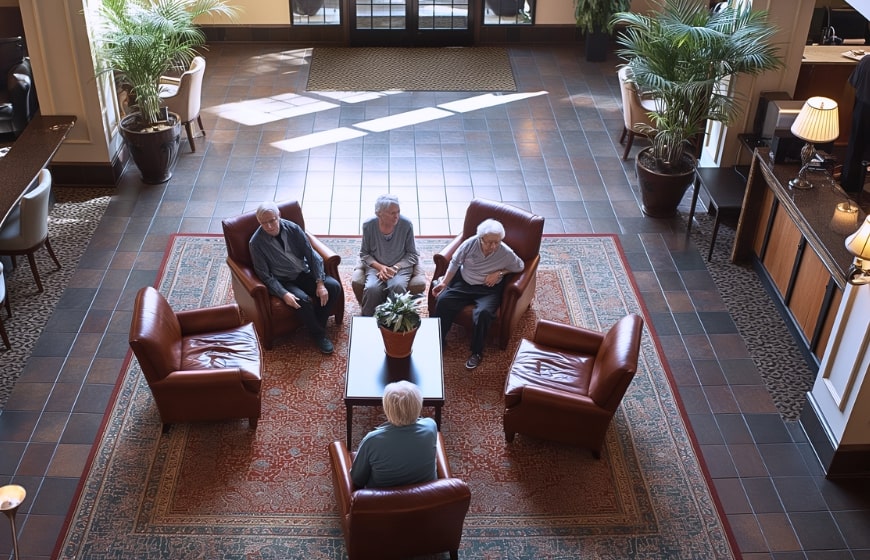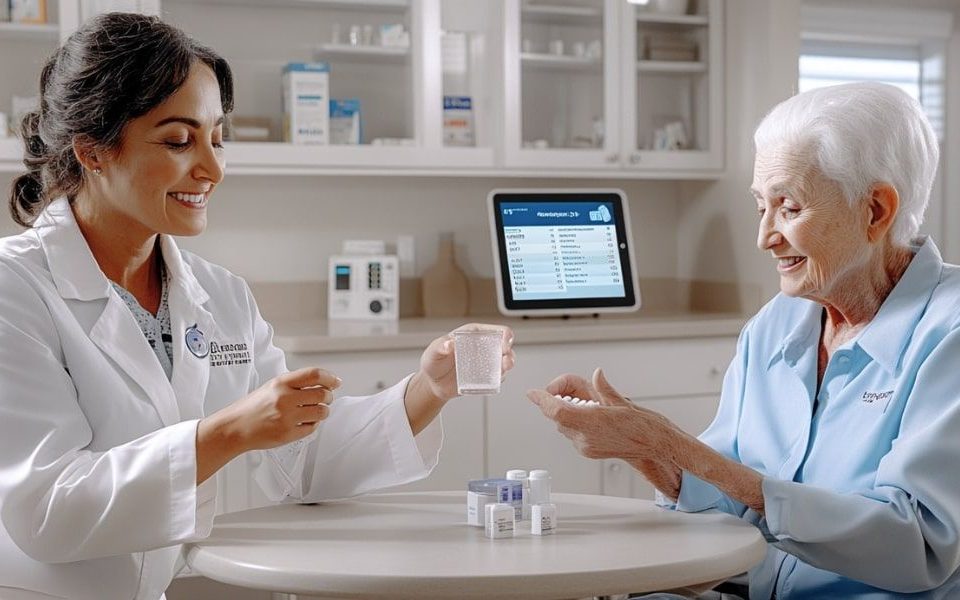
8 Recommended Activities for Seniors with Memory Loss
May 9, 2024
Your Assisted Living Tour Checklist: Essential Questions to Ask
May 23, 2024Medication management is among the many services assisted living centers offer. It’s essential for senior care because many seniors depend on medications to treat short-term and chronic conditions. While assisted living facilities encourage independence among their residents, many seniors find it difficult to manage their medications. Assisting patients with medication management and administration ensures they take medicine when needed. This post will explore the roles of assisted living medication management and administration.
Assisted Living Medication Management Vs. Administration
Medication administration is one component of medication management. It refers to the dispensing and taking of the medicine. Residents may take medicine through injection, inhalation, ingestion, or topical application.
Meanwhile, medication management is an umbrella term involving tracking medication and ensuring that residents take it as prescribed.
Medication Management
The components of medication management include:
- Resident Evaluation: Staff must conduct a yearly evaluation to determine whether the individual can reliably self-administer medicine and track usage.
- Staff Training: Registered nurses train the staff to ensure their knowledge of proper medication administration. This training ensures that the staff is reliable in assisting their residents.
- Medication Organization: Help residents store and label their medication, create a schedule, and ensure they take it at the right time.
- Record-keeping: Keep track of all vital information. Relevant information includes prescribed medications, the time of administration, observed side effects, and medication errors.
- Medication Administration: Remind residents when to take medication and help seniors needing assistance.
- Side Effects Management: Monitor and report any side effects the resident encounters to the doctor. Help mitigate known side effects.
- Communication: Staff communicates any changes to a resident’s health to their healthcare provider and family.
Seven Rights of Medication Administration
Those who assist with medication must adhere to the seven rights of medication administration. These rights include:
- Right Individual: Always double-check and confirm whether you’re administering the medication to the right resident or individual.
- Right Medication: Triple-check and verify the name of the proper medication prescribed by the doctor.
- Right Dose: Recheck the resident’s chart to confirm the right dosage of the medication. Also, ensure it’s in the right form (pills, liquid solution, IV fluids, etc.) and unit conversion.
- Right Time: Track time-sensitive medications and administer them at their correct times.
- Right Route: The route refers to how the patient takes the medicine. It could be orally, topically, rectally, or nasally.
- Right Documentation: Record every administration detail, including errors, side effects, and interactions with other medications.
- Right Response: Observe and document the resident’s response to the medication and whether it shows a positive result.
Safety and Overall Well-Being at Dream Catcher
If you need a senior care center in Georgia, check out Dream Catcher. We offer seniors the services and amenities they need to live healthy and fulfilling lives. Get in touch with our team, and we’ll be happy to answer your questions.
Thanks for visiting!



